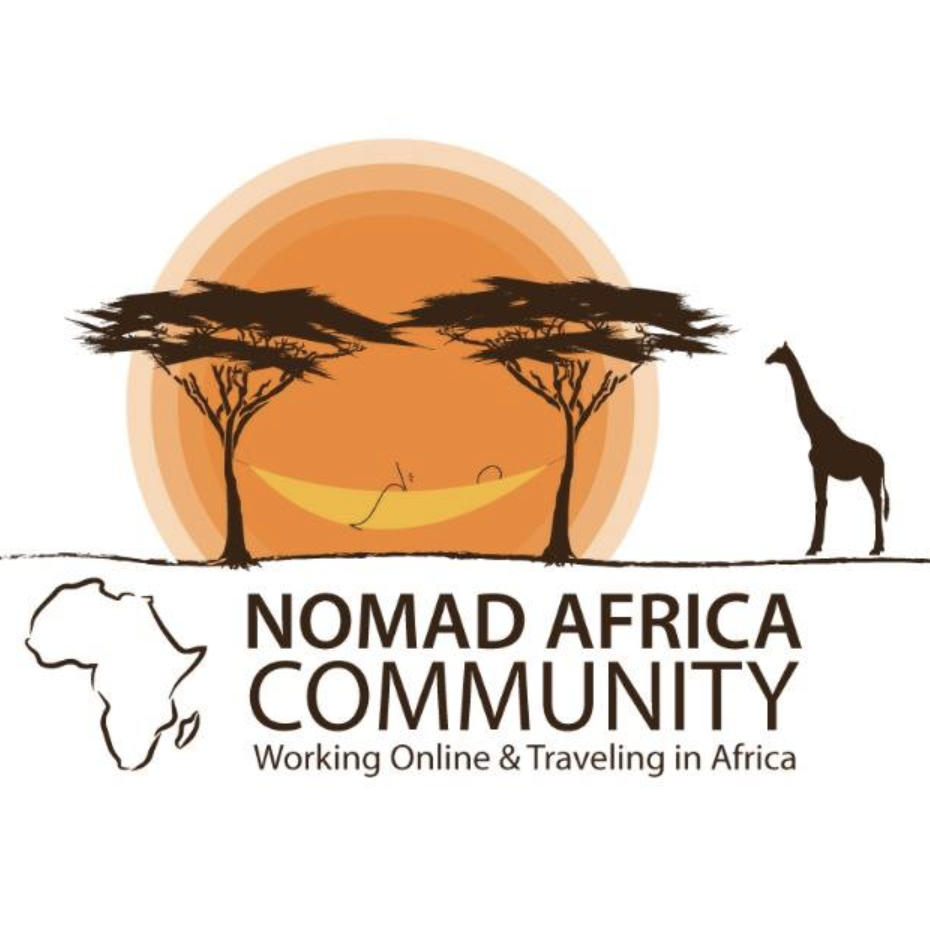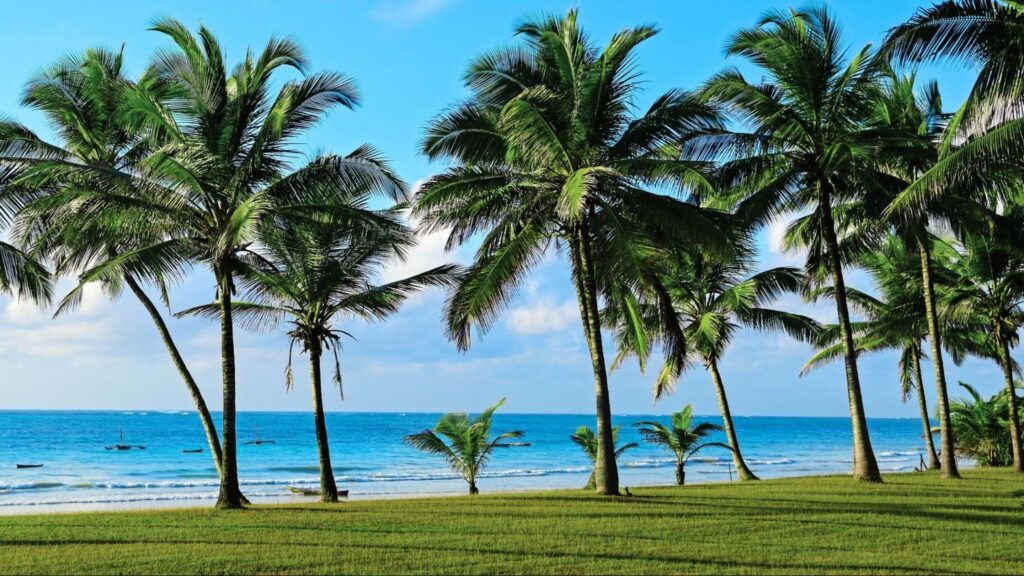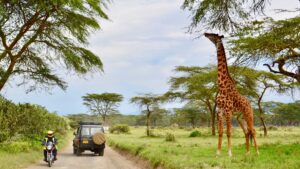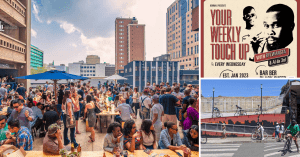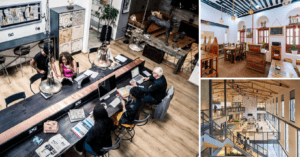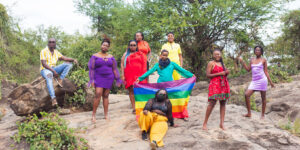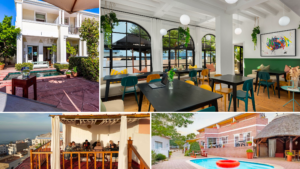Zanzibar is one of those places that immediately captures your imagination when you hear its name. White sand beaches, crystal clear waters, historic citadels, and sumptuous seafood. It lives up to its reputation, don’t worry!
For digital nomads, Zanzibar has exploded in popularity in recent years. However, working remotely from the island comes with some challenges – the unreliable, often slow internet being #1.
So, in this guide, I’ll provide the most practical tips for working and traveling on the island from the two months I spent here in 2023.
Table of Contents
The #1 community for nomads in Africa
Looking for the latest, most honest tips on remote working and traveling in Africa? Our free community of 2,500+ Africa fanatics has decades of experience on the continent. We’ve been traveling here since before Wi-Fi even existed.
From Cape Town or Casablanca, we’ve got everything you need for an unforgettable trip:
- Up-to-date tips on every African country you can think of.
- Honest, independent recommendations for colivings, coworkings, tour companies, and much more.
- Organise meetups and make friends on the road.
Quick Tips for Zanzibar
- Zanzibar is a very conservative society. Please respect the local culture and dress appropriately on the island – men and women.
- Internet in Zanzibar isn’t that bad – but it’s not great. Plan ahead and follow my tips below, and you should face minimal disruption.
- Buy a Vodacom SIM card and download the MyVodacom app to your phone. This will help you keep your data topped up for when you need to hotspot as a backup internet connection.
- The Zanzibar app lists events happening around the island every week.
- Stone Town is the nicest place to live and work in Zanzibar. Don’t be fooled by the allure of the white sand beaches in Paje and Nungwe. They’re nice for a weekend, but nothing more. Also, Stone Town’s public beach is pretty great.
- Weather in Zanzibar is great year-round. But for the best weather and atmosphere, including the Sauti ya Busari festival, visit around late January to April.
- Zanzibar has a special driving license. If you plan to rent a scooter or car, you must buy one for ~$50 or face daily fines from aggressive traffic cops.
- Ramadhan is taken very seriously. If you visit at this time, expect many restaurants and bars to be closed. You will also be expected follow and respect the rules around fasting while on the island.
Zanzibar Pros
- Stone Town – Zanzibar’s capital is a charming labyrinth of winding streets, friendly people, mosques, hidden treasures, and occasionally striking architecture. It buzzes with activity throughout the day, while evenings are a more relaxed affair and just as fun to explore.
- Sightseeing – You’ll be spoiled for choice, between daily boat trips, walking tours, stunning natural attractions, snorkeling, diving, and much more.
- Zanzibari culture – The island has a distinct feel from anywhere else I’ve traveled in Africa, which infuses everything, from the food and music to fashion and interactions with tourists.
- Getting around – Zanzibar is a small island with good roads and light traffic. Commuting between different towns and destinations is easy, especially if you rent a scooter or private taxi.
- Festivals – Zanzibar has many music and cultural festivals throughout the year. The most popular is Suati ya Busari, held in February to celebrate Zanzibari culture and African music.
- Food and drinks – Zanzibar has a distinct cuisine, with elements of African, Arabic, and European flavours. Also, excellent coffee.
- Coworking spaces – There are half a dozen coworking spaces spread throughout the island. They usually offer backup power, reliable internet, aircon, coffee, and a small community.
Zanzibar Cons
- It’s expensive – Cost of living in Zanzibar as a digital nomad can get expensive quickly. Almost everything is imported, and comes from outside Africa, so groceries, eating out, transport, accommodation, etc. all cost a premium and often aren’t good value.
- Overdevelopment – Zanzibar’s tourism boom has seen rapid development of highend resorts and boutique hotels, straining the island’s infrastructure and creating huge inequality.
- Internet – While not as bad as everyone says, WiFi is slow and unreliable, worsened by frequent power cuts. But, I worked on the island for 2 months with zero issues. Just fewer video calls.
- Accommodation – Finding affordable, reasonably priced accommodation is very informal and time-consuming. But, hopefully we can change that!
- Tidal beaches – The East Coast beaches around Paje and Jambiani experience huge differences in tides throughout the year. It’s often impossible to swim throughout the day as a result.
- Ramadan – Most Zanzibaris follow the fasting season and expect visitors to respect it. Restaurants often shut down entirely, bars will be restricted, and everything slows down considerably.

Destinations
- Stone Town – By far my favorite part of the island. I lived here for a month and never got bored exploring its streets, chatting with local residents, finding new places to eat, taking lazy evening strolls, and swimming at the beach.
- Paje – Over-rated and bad value. Unless you like expensive restaurants, inappropriately dressed tourists on drugs, kite surfers constantly getting in your way, and over-priced restaurants… avoid. Just come for the nightlife.
- Jambiani – Just down the road from Paje and much nicer, with a quieter (and more beautiful) beach, fewer tourists, better accommodations, and lots of shops and restaurants.
- Nungwe & Kendwa – The main tourist spots with the most expansive beaches (also not impacted by tides). Best for short visits, as the focus is on large resorts and package holidays.
- Fumba Town – An interesting experiment in smart city planning 20 minutes south of Stone Town. Fumba is a purpose-built eco-friendly town with a range of apartments, stores, a fantastic restaurant overlooking the water, and much more.
Coworking Spaces
There are now at least 6 coworking spaces throughout Zanzibar. While they vary a lot in style and amenities, each one generally provides everything you need to work remotely.
Highlights include:
- The Train’s House, Stone Town – On the edge of the Old Town, it’s got everything you need for a productive work day.
- The Nest, Paje – Beachfront coworking in a popular resort. Close to kitesurfing, restaurants, apartments, and much more.
- Blurum Office Share, Jambiana – Conveniently located in Jambiani Plaza on the main road from Paje. Functional and comfortable spaces.
Check out our complete guide to coworking spaces in Zanzibar.
Internet in Zanzibar
You’ve probably heard many horror stories about Zanzibar’s internet – don’t believe them!
Yes, it’s not very good. But it’s getting better throughout the island, and in 2 months I never had any serious issues.
I could host video calls, including sales calls with new consulting clients. I met every deadline due to an internet blackout. And none of my clients noticed a difference in my availability.
This includes the month I lived in a 150-year-old hotel in Stone Town and two weeks in a backpacker hostel still being constructed.
However, there is still the risk of internet blackouts and power cuts disrupting your work. So, here are a few tips to stay online:
- Buy a Vodacom SIM card when you arrive. It has the best coverage across the island and is easy to top up. Great for hotspotting as a backup!
- Download the MyVodacom app. You can track your remaining data and quickly buy more before an important call.
- Work from a coworking space. Plenty are popping up around the island, and they offer stable internet, backup power, and aircon.
- Plan ahead. If you have an important call or need lots of bandwidth, work from a coworking space or laptop-friendly cafe (listed below).
- Use a VPN. This will spare you any bandwidth throttling from internet providers rationing their network. I recommend ExpressVPN.
- Take a holiday! Your trip to Zanzibar is a good opportunity to slow down and work a little less.
Read more >>> The Best VPNs for digital nomads in Africa.
Laptop-friendly cafes
You’ll find a handful of cafes that accommodate remote workers dotted throughout Stone Town, Paje, Kendwa, and Nungwe. Their internet should be more reliable than regular restaurants, and they all have sockets, backup power, and comfy tables to work from.
Stone Town
- Kaarafuu – A stunning specialty cafe in the heart of Old Town. Delicious coffees with a traditional Arabic and Zanzibari twist,
- Travellers Cafe – Tucked away in a quiet corner of Old Town, looking out over a popular public beach, and serving excellent food in a relaxed setting.
Paje
- Mr. Kahawa – Probably the most popular place in Zanzibar for nomads. There is an indoor area set up for working, but most tables will do the job.
- Bali Cafe – 10 minutes drive north of Paje, this roadside restaurant is easy to miss. But I came here regularly for the relaible internet and 4G network, plentiful sockets, backup power, and tasty menu.
- Bara Bara Eat&Sleep – Part of a boutique guesthouse, this small rooftop restaurant serves tasty but expensive hipster breakfasts and lunches. You know the kind.


Fumba Town
- Kwetu Kwenu Chill – Stunning cliff-side bar and restaurant with stunning sunsets, sumptuous food, a relaxing vibe, and a ladder into the water for refreshing ocean swims.
Accommodation Options
Finding reasonably priced long-term accommodation in Zanzibar is one of the biggest issues – especially in peak seasons.
However, as more nomads start traveling here, options are improving.
Coliving Spaces
- The Train’s House, Stone Town – Adjacent to the coworking space, you can stay in a shared apartment with a kitchen, common area, and everything else you need.
- Freshi Residence, Jambiani – A short walk from the beach, this tiny location has rooms of various sizes. Difficult to find, basic, but it has everything you need.
- Bar Bar Eat&Sleep, Paje – They have small rooms available to rent daily, weekly, and monthly.
Nomad-friendly Apartments
The Zanzibar Digital Nomads Facebook group allows people to offer and request rental apartments. However, the admin is incredibly slow to approve posts and often rejects them for no obvious reason, while seemingly allowing friends’ businesses to post frequently.
You can also find apartments on Airbnb, but they’re very expensive.
Avoid the Natural Park Villa Resort in Dongwe. I booked an apartment there for 1 month with a friend, but we left after 10 days due to never-ending issues and hostility from the owner.


Emerson on Hurumzi, Stone Town
The Emerson is a beautiful heritage hotel in the heart of Stone Town built as a private residence over 150 years ago. It’s most well-known as a luxury boutique hotel and its traditional Zanzibari food and dance performances.
However, the hotel also has studio apartments available on Airbnb for ~$500 per month.
I lived at the Emerson for a month and loved every minute. My apartment was beautiful, resplendent with Victorian-era furnishings, a four-post bed, a private rooftop terrace, and a hidden balcony looking out over Stone Town.
The hotel is gorgeous, the staff are warm and friendly, and you can order a healthy breakfast and coffee for ~$5 every morning. Alternatively, there’s a simple kitchen for residents.
The location is also perfect for exploring and living in Stone Town. You could not be more central, with every attraction, store, restaurant, and historic building within walking distance.
When to Visit Zanzibar
Zanzibar can be a year-round destination.
It never gets insanely hot, and the rainy season is quite pleasant. Showers might be frequent, but you shouldn’t worry about flooding. Stone Town’s smaller streets might be a bit unpleasant, though, as rainwater flows through them, picking up dirt and grime on the way.
Peak season is around Christmas and New Year, so expect extortionate prices for accommodation and flights.
I stayed here in February and March 2023, and found the weather almost perfect. Sunny and warm most days, with occasional intense showers similar to what you would experience in Southeast Asia.
Visiting Zanzibar During Ramadan
Traveling in Zanzibar during Ramadan, the Islamic holy month of fasting, can be a unique and rewarding experience. Here’s a brief guide to help you navigate and enjoy your stay:
- Understanding Ramadan: Ramadan is a month of fasting, reflection, and community. Muslims abstain from food, drink, and other physical needs during daylight hours.
- Respect Local Customs: As a sign of respect, refrain from eating, drinking, or smoking in public during fasting hours. Dress conservatively to honor local sensibilities.
- Plan for Adjusted Business Hours: Many businesses may have reduced hours, especially restaurants, which often open only after sunset.
- Iftar Experience: After sunset, you can join in the ‘Iftar’, the meal that breaks the fast. It’s a time of great festivity and food, often shared with the community.
- Nightlife and Festivities: The nights of Ramadan are vibrant, with people going out after Iftar. Markets and bazaars may be open late, and there could be special events and celebrations.
- Quiet Days, Lively Nights: Days may be quieter than usual as locals rest, but nights are full of life. Plan your activities accordingly.
- Transportation: Public transport might follow a reduced schedule, so plan your trips ahead and confirm your travel arrangements.
- Accommodation: Hotels and guesthouses operate normally, but it’s wise to book in advance.
Getting Around Zanzibar
Zanzibar is a small, flat island with fantastic roads. Getting around is easy, but I recommend using private transport when possible. It’s more expensive, but a lot more convenient.
Overland Travel by Bus
There are plenty of semi-regular buses criss-crossing Zanzibar between the main towns.
I never used one, so I can’t provide much information. But we’ll add some soon.
Taxis and Shuttles
You’ll find minibus taxis throughout Zanzibar shuttling passengers between towns. They’re called dala dalas. They’re cheap and regular enough, but not very comfortable.
If you’re in a group or a couple, you can usually rent one privately, and it works out very cheap.
A taxi from Zanzibar airport to most parts of the island costs $40-50.
Motorbike Taxis
Zanzibar has plenty of motorbike taxis to take you around, especially on the east coast (Paje, Jambiani, etc.).
They’re super cheap, generally don’t rip you off, and drive responsibly (mostly). If you have a good experience with a driver, take his number and call him any time you need a ride. This is the best way to get around town if you don’t want to drive yourself and spend lots on taxis.
Self-Driving
Traffic on Zanzibar is very light outside of Stone Town, and the roads are mostly in good shape. It’s also completely flat.
This makes driving a scooter or car quite pleasant.
However, renting is expensive. Scooters start at $20/day or $300 per month. Cars cost $30/day. I don’t know the monthly cost.
If you spend more than a month on the island, I recommend renting a scooter. This allows you to explore without constantly renting private hires or sitting on cramped buses.
It’s also handy in case you experience internet or electricity blackouts, and you quickly need to relocate.
I rented a scooter when I stayed in Stone Town, and it transformed my experience on Zanzibar. I could spend my weekends at the various beach towns, and take day trips to less well-known places like Fumba Town.
Paje has plenty of vehicle rental shops charging similar rates. I recommend Kapengaro. They’re reliable, friendly, and for a small fee, they’ll collect your bike from anywhere on the island when you leave – so you don’t have to drive back to Paje.
Money in Zanzibar
Almost every transaction you make in Zanzibar will be in cash. Bigger businesses like hotels and tour companies may accept USD and card payments, but restaurants, car rentals, bars, etc. will mostly expect you to be in local currency.
Need-to-know tips:
- The highest denomination note is equivalent to roughly $4, so you’ll need to withdraw massive wads of cash regularly.
- ATMs charge expensive fees for international withdrawals. I think somewhere between $5-7.
- ATMs in Paje often run out of cash, so stock up in Stone Town or withdraw early in the morning.
- Wise’s debit card is the best travel debit card for Africa, with free withdrawals up to ~$200 a month, excellent security, and instant transfers almost anywhere.
- ATMs are generally safe, but use them during regular business hours for extra precaution.
Tanzania Tourist Visas
| Visa Type | Cost for U.S. Citizens | Cost for Other Nationalities | Maximum Validity | Entry Type | Additional Information |
| Ordinary Visa | $100 | $50 (Varies for certain nationalities) | 90 days | Single/Multiple (depends on nationality) | Valid for tourism, leisure, holiday, health treatment, etc. |
| Transit Visa | $30 | $30 | Not specified | Single | For transit through Tanzania |
| Multiple Visa | $100 | $100 | 12 months | Multiple | Requires leaving the country at least every three months |
| Visa on Arrival | $100 | $50 – $100 | 90 days | Single/Multiple (depends on nationality) | Available at the airport, cash payment preferred due to connectivity issues |
Getting to Zanzibar
You only have two options for transport to Zanzibar: flying or taking the ferry from the mainland. So, let’s explore both.
(TLDR: I recommend flying)
Flying
There are direct flights to Zanzibar from the following cities:
| Continent | Cities |
| Africa | Dar Es Salam, Arusha, and other locations in Tanzania Nairobi, Kenya Kigali, Rwanda Johannesburg, South Africa Entebbe, Uganda Addis Ababa, Ethiopia Nosy Be, Madagascar |
| Europe | Istanbul, Turkey Milan and Rome, Italy Frankfurt, Germany Amsterdam, the Netherlands Paris, France Zurich, Switzerland |
| The Middle East | Doha, Qatar Dubai, UAE Muscat, Oman |
| Asia | Guangzhou, China |
If you fly via Dar Es Salaam, flights leave daily and start from $40 one-way. It takes 30 minutes, and most airlines include check-in luggage in your ticket.
Ferry from Dar Es Salaam
The Dar Es Salaam to Zanzibar ferry has modern, fast ferries built for the rough seas between the mainland and island. The journey should take less than 2 hours, but slower ferries take about 3 hours.
Boarding and departure can be a bit chaotic, but if you don’t have much luggage, it’s a fun way to get to Zanzibar and experience some local life on the island.
Three ferry operators running the route:
- Azam Marine (Kilimanjaro series)
- Fast Ferries (Zan Fast Ferries)
- Sea Express (older, slower ferries)
Book your ticket in advance on the operators’ websites or take your chance at the ferry terminal.
Safety in Zanzibar
Zanzibar is generally very safe, so take the typical safety precautions for any popular beach destination. Keep your belongings close, especially at night, and don’t leave stuff in public.
I have heard stories of theft and break-ins in Paje from people living in the built-up residential area between the main beach and shopping areas. If you’re renting a bungalow here, ensure it has adequate security.
In Stone Town, the Old Town is safe day and night. You’ll encounter plenty of people out for evening strolls late into the night, and I never experienced or heard about people getting robbed or harassed.
Safety for Women
The women I met found Zanzibar quite safe, although catcalling and aggressive attention from young men is an issue.
If you’re moving around a lot at night, make sure you have a trusted driver, rather than depending on random taxi drivers and guys with bikes.
But overall, I think Zanzibaris are respectful of foreign women.
Just remember to dress appropriately.
Most Zanzibari women are hijabi. Even the non-hijabi women dress modestly wherever they go – including the beach. If you plan to sunbathe or hang out in a bikini, please do so at hotel pools and touristy beaches.
Inappropriately dressed tourists have become such a big issue in Zanzibar, that the government has introduced fines for tourists. So, save yourself a lot of negative attention and potential fines, and dress respectfully.
Safety for LGBTQ+ Travelers
Homosexuality is illegal in Tanzania and Zanzibar and not tolerated.
Public displays of affection between same-sex couples could lead to harassment and, in extreme cases, arrest.
Generally, like most places in Africa, we recommend following a “don’t ask, don’t tell” attitude while in Zanzibar.
You may be a little confused when you get here how a society that frowns upon homosexuality also celebrates Queen singer Freddie Mercury as one of their most famous citizens and plasters his face everywhere. No one is allowed talk about Mercury’s personal life. Just his fame.
